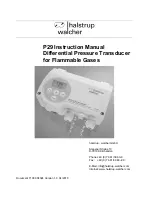
AddSecure Tor V, PDK-11606
14
6.10
Analogue dialler
The alarm transmitter acts as a switchboard and picks up automatically when the control panel
dials using the modem’s output. If the control panel sends information in SIA format or
Contact ID (CiD), it is read and then forwarded to the connected alarm center. For this to
happen, you need to have ordered the plain text SIA service or Contact ID. The control panel
is to be programmed with an optional telephone number, consisting of six (6) digits.
Connecting the control panel with an analogue dialler is done with the tele
terminal pair; see Figure 12. The number of the pin is not important.
Transferring alarms through the control panel’s telephone connection
(PSTN) is also called dial-capture. With this service, the alarm transmitter
acts as an analogue telephone network, which it simulates by:
Producing line voltage (approx. 30 volt).
Generating a dial tone when the connected control panel picks up the receiver.
Receiving DTMF signals from the control panel (number dialing).
The next step in receiving a SIA or Contact ID message that the control panel transmits
through its telephone connection is for the alarm transmitter to simulate an alarm receiver.
It does this by sending and receiving the signal that the SIA or Contact ID protocol uses. In
this way, the alarm transmitter receives and acknowledges messages that the control panel sends
through its telephone connection. After the transmission from the control panel is complete,
the message is stored in the alarm transmitter and is forwarded through AddSecure’s system to a
preset alarm receiver. The alarm transmitter deletes the locally stored messages when the system
acknowledges that the messages have been forwarded on.
Note that dialler interface is only for additional information. You must use
the input interfaces to follow the regulations (EN 54-21:2006, EN 50136/SSF
114)
Must not be connected to the general telephone network (ordinary telephone
jack/PSTN). The telephone line connection can only be connected to the
control panels to use the analogue dialler.
The terminal block supplies 30V of line voltage with a ring signal according to the
PSTN standard.
7
TESTING THE FIRE ALARM INSTALLATION (EN 54-21:2006)
To test the communication alarm between the control panel and the alarm transmitter as well
as between the alarm transmitter and the alarm receiver, disconnect the current power supply
for the alarm transmitter. Then check the control panel for errors (see 6.5.1) and with the alarm
receiver for a disruption in communication. Then reconnect the power supply, and check that
the control panel and the alarm receiver have been reset for each alarm.
Figure 12
–
Tele terminal block






































